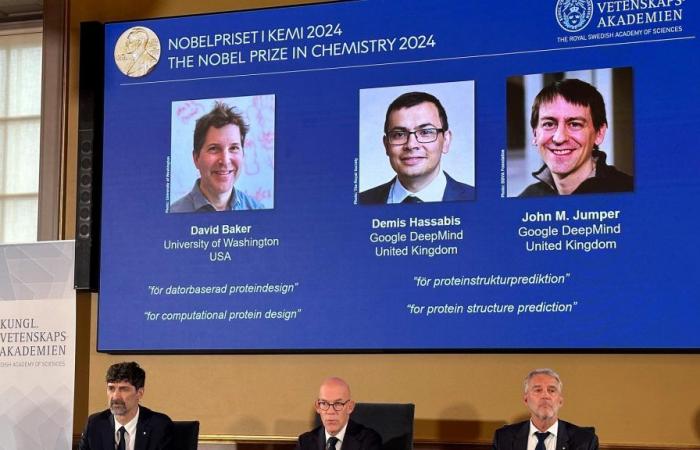
Baker, who works in the US, will receive half the prize for computational protein design. Hassabis and Jumper, who work in the UK, get the other half for predicting the complex structures of proteins.
In 2003, Baker achieved the almost impossible feat of constructing a completely new protein from amino acids, the academy said. Since then, his research group has created additional proteins, including ones that can be used as drugs, vaccines, nanomaterials and tiny sensors.
Researchers can now better understand antibiotic resistance
Hassabis and Jumper used an artificial intelligence model to solve a 50-year-old problem: predicting complex protein structures, the academy said. Using their model, they could have predicted the structure of virtually all of the 200 million proteins that researchers had identified.
Among other things, researchers can now better understand antibiotic resistance and create images of enzymes that can break down plastic. Hassabis and Jumper work for the company Google Deepmind in London, which specializes in programming artificial intelligence.
To date, 1,004 Nobel Prize winners have been honored
Yesterday the Nobel Prize in Physics was awarded to two US pioneers of artificial intelligence. The winner in the literature category will also be announced tomorrow, and the winner of the Nobel Peace Prize will be announced on Friday in Oslo. This year, the Nobel Prizes are endowed with the equivalent of almost 970,000 euros per category. They will be ceremonially presented in December.
From 1901 to the present, 623 Nobel Prizes have been awarded to 1,004 individuals and organizations. Of these, 65 Nobel Prizes went to women. Marie Curie was awarded twice, with the prize in physics in 1903 and the prize in chemistry in 1911. In the ranking by country, Germany is in third place behind the USA and Great Britain. Most Germans received awards in the chemistry category, followed by physics, physiology and medicine as well as literature. The Nobel Peace Prize and the Nobel Prize-based award for economic sciences went to Germany four times; However, the latter has only been awarded since 1969.
Further information on the topic can be found here.
This message was sent on October 9th, 2024 on the Deutschlandfunk program.





